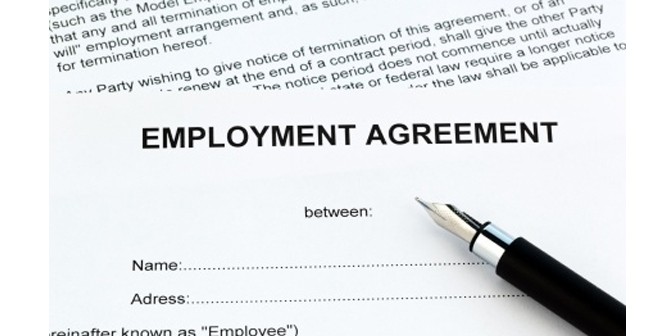The Oregon legislature has amended the statute governing non-competition agreements so that any non-competition agreements entered into after January 1, 2016 must limit the duration of non-competition following an employee’s termination to 18 months. The statute in effect until the end of 2015 provides that the restriction against competition following termination may be as long as two years.
Employers need not (and should not) modify their existing agreements to reflect this change, because the existing agreements are governed by the current statute that was adopted in 2008 or, if entered into before 2008, are governed by a prior statute. For those individuals who are currently employed and are bound by a noncompetition agreement that meets the requirements of a prior statute, an employer’s attempt to require employees to sign a new noncompetition agreement midstream in their tenure of employment could be ineffective and could even result in the loss of the noncompetition restriction that otherwise might have been effective.
Many noncompetition agreements provide that they represent the “entire agreement” of the employer and employee and supersede prior agreements. Therefore, except in cases of a bona fide advancement of an employee being assigned greater responsibilities or different duties and a significant pay increase, it would be ill-advised to replace existing noncompetition agreements either before or after the amendment to ORS 653.295 which takes effect on January 1, 2016.
Provisions to include in agreements.
As to employees hired or promoted after January 1, 2016 and entering into a new noncompetition agreement, the provision specifying the period of noncompetition following termination cannot exceed 18 months.
Oregon law continues to require that the employer inform a new employee, via a written employment offer received by the employee at least two weeks before the first day of the employee’s employment, that a noncompetition agreement is required as a condition of employment. For existing employees, a noncompete can only be required upon a bona fide advancement or promotion. In addition, the employer must be in a position to demonstrate that the employer has a protectable interest. As a consequence, based upon factual support, the agreement should recite that the employee has access to trade secrets or access to competitively sensitive confidential business information, such as product development plans, product launch plans, marketing strategy, sales plans, or customer information. To be enforceable, the noncompetition agreement should also state that the employee is an exempt employeeas that term is described in ORS 653.020(3). If the new hire is a non-exempt employee, then the noncompetition restriction would not be enforceable.
Other provisions that should be included in an employment agreement include a covenant not to solicit employees of the employer or solicit or transact business with customers of the employer. The agreement should contain a confidentiality/nondisclosure provision that restricts individuals from using or disclosing competitively sensitive confidential information, customer information, or other information that is not public and would be harmful if it were to be disclosed to or used on behalf of a competitor. Employees should also be required to return the employer’s documents, property, hardware, and electronic data upon termination.
An agreement should contain an “assignment provision” in which the employee consents in advance to the company’s right to assign the agreement in the event of sale or transfer of the business.
The agreement should also provide for relief in the event there is a violation by the employee. Specifically, the agreement should recite the fact that the employer will suffer immediate and irreparable harm if there is a violation and that therefore the company shall have the right to seek an injunction to enforce the restriction to the maximum extent permitted by law as well as the right to recover damages. There should also be a provision providing for an award of attorney’s fees to the prevailing party.
If the employee lives outside the area or works in more than one location, then a choice of law and venue provision is recommended as well. Under such a provision the document shall state that the agreement is governed by Oregon law or, in the alternative, if the employer prefers that the law of some other state govern, then the law of the state in which the employee works could be identified as the controlling law. With some exceptions, many other states, including Washington and Idaho, are more likely to enforce noncompetition agreements than Oregon. California, by statute, does not enforce such agreements. Therefore, the choice of law provision may have a significant impact when it comes to enforcement. The agreement should also state where any claims are to be brought (for example, any state or federal court in a particular county within a selected state).
In summary, for employees who are asked to sign a noncompete after January 1, 2016, employers should take care to review the form of agreement in order to make sure that it contains the maximum allowable protection for the employer. For a noncompete to be enforceable in Oregon certain conditions must be met;new hires must be given notification that a noncompete is a requirement of employment at least two weeks in advance of the starting date,whereas existing employees must receive a bona fide advancement in accompaniment with the request to sign a noncompete. However, attempts to tinker with existing agreements that are governed by versions of the Oregon noncompetition statute in place before the amendments go into effect on January 1, 2016 can be problematic, unless a new agreement is being entered into upon a bona fide advancement of the employee.





